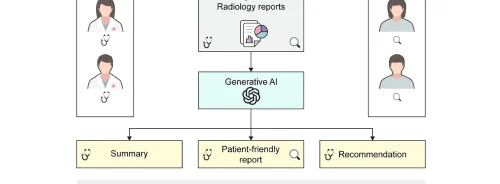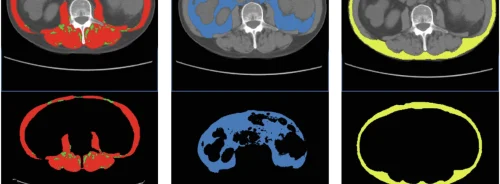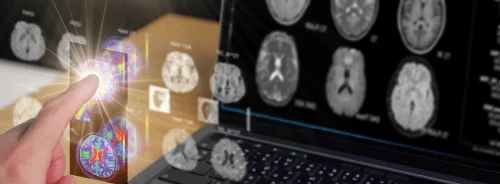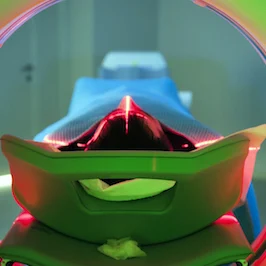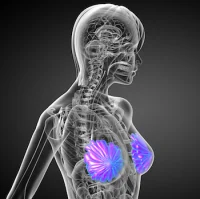In what is the largest public release of raw data to this day, the NYU School of Medicine’s Department of Radiology and Facebook join forces on a collaborative research project that will share open source tools to propel the development of AI systems that may produce 10 times faster MRI scans.
More than 1.5 million anonymised MR images of the knee, drawn from 10,000 scans and raw measurement data from nearly 1,600 cases comprised the initial data release. The joint research team will provide a set of tools, baseline metrics for comparative results and a leaderboard to track progress and share results at fastmri.org as part of another initiative to be announced in the near future.
The data release is the latest phase in the joint research project called fastMRI, between NYU School of Medicine Department of Radiology’s Center for Advanced Imaging Innovation and Research (CAI2R) and Facebook AI Research (FAIR).
You may also like: Radiology’s future: outside the box– literally
Michael P. Recht, MD, chair and the Louis Marx Professor of Radiology at NYU Langone Health, announced the dataset release during his plenary address at the 2018 Annual Meeting of Radiological Society of North America (RSNA). This collaboration, which resulted in the release of what Dr. Recht called “the largest-ever collection of fully sampled MRI raw data,” addresses one of the biggest challenges of implementing AI, the lack of large curated data sets.
“We hope that the release of this landmark data set, the largest-ever collection of fully-sampled MRI raw data, will provide researchers with the tools necessary to overcome the challenges inherent in accelerating MR imaging. This work has the potential to not only help increase access to MR imaging, but also improve patient care worldwide,” said Dr. Recht.
Keeping with their goal of even greater acceleration, Dr. Recht cited baseline results from FAIR and NYU Langone demonstrating that speeding up MRI scans by a factor of four is already possible. He nevertheless emphasised that it is essential to have broad validation of such early results.
"I believe that through the creative use of technology we can create new value and help return radiologists to their central role in the clinical care team, thereby increasing our purpose and our sense of satisfaction," said Dr. Recht.
Achieving faster MRI through the fastMRI project, if it succeeds, will benefit a very large number of patients who experience difficulty undergoing lengthy scans, including children, elderly or limited mobility patients and those suffering from claustrophobia. It can minimize the need for anaesthesia or sedation and the project could expand the access to this diagnostic tool in areas where MRI scanners are limited and patients experience long wait time for their scans.
"fastMRI not only could have an important impact in the medical field, it's also an interesting research challenge that will help to advance the field of AI," said Larry Zitnick, Research Manager, Facebook AI Research. "To be medically useful, our AI-reconstructed images need to be more than just good-looking, they must also be accurate representations of the ground-truth, even though they're created from significantly less data. The dataset NYU Langone is releasing and the baseline models we've open-sourced will enable other researchers to join us in working on this challenging problem, and we believe this open approach will bring about positive results more quickly."
MRIs provide a wealth of critical information, imaging unprecedented detail in soft tissues such as organs and blood vessels but they are notoriously slow tests. An MRI scan can range from 15 to 45 minutes and in some cases over an hour depending on the nature of the scan. By leveraging the power of AI researchers believe it’s possible to capture less data, making the imaging process faster, while adhering to image integrity and enhancing the rich information MR images contain.
Dr. Yvonne Lui, associate professor of radiology and associate chair of artificial intelligence at NYU Langone Health said “our collaborative priority for the next phase of this work is to use the experimental foundations that have been established- the data, baselines and evaluation metrics- to further explore AI-based image reconstruction techniques,” and added that “any progress made at NYU School of Medicine and FAIR will be part of a larger effort that spans multiple research communities. Results will be complied and compared on fastMRI leaderboard, as well as in research papers and workshops to come.”
The imaging data used in the fastMRI project was collected exclusively by the NYU School of Medicine researchers and the project was governed by strict human data protection protocols overseen by the school of medicine’s Institutional Review Board. The work is HIPAA compliant, all data are fully anonymised, stripped of all protected health information including any patient identifiers and potentially distinguishing features. The work is supported by the world-class information technology team at NYU Langone Health and no Facebook data of any kind are used in the project.
There have been other sets of radiological images released past but this dataset is the first and the largest public release of raw MRI data to date. The first phase of the project will involve data from knee MRI scans, but future releases will include data from liver and brain scans.
“This collaboration focuses on applying the strengths of machine learning to reconstruct high-value images in new ways. Rather than using existing images to train AI algorithms, we will radically change the way medical images are acquired in the first place,” says Daniel Sodickson, MD, PhD, professor of radiology and neuroscience and physiology and director of CAI2R. “Our aim is not merely enhanced data mining with AI, but rather creating new capabilities for medical visualisation, to benefit human health.”
The anonymised imaging dataset provided by NYU Langone comprises raw k-space data from more than 1,500 fully sampled knee MRIs obtained on 3 and 1.5 Tesla magnets and DICOM images from 10,000 clinical knee MRIs also obtained at 3 or 1.5 Tesla.
Curation of these datasets are part of an IRB approved study. The raw dataset includes coronal proton density-weighted images with and without fat suppression. The DICOM dataset contains coronal proton density-weighted with and without fat suppression, axial proton density-weighted with fat suppression, sagittal proton density, and sagittal T2-weighted with fat suppression.
Raw and DICOM data have been anonymised via conversion to the vendor-neutral ISMRMD format and the RSNA clinical trial processor, respectively. We also performed manual inspection of each DICOM image for the presence of any unexpected protected health information (PHI), with spot checking of both metadata and image content.
Interested scientists may apply for access to fastMRI data for the purposes of internal research or education only. Access is contingent on adherence to the fastMRI Dataset Sharing Agreement, which also outlines policies for publication and citation.
Sources: NYU Langone Health, Center for Advanced Imaging Innovation and Research (CAI2R), Facebook AI Research (FAIR), fastMRI, Radiological Society of North America (RSNA).
Image Credit: iStock
References:
NYU Langone Health, Center for Advanced Imaging Innovation and Research (CAI2R), Facebook AI Research (FAIR), fastMRI, Radiological Society of North America (RSNA)
Latest Articles
MRI, big data, Facebook, Artificial Intelligence, AI, RSNA , #RSNA18, datasets, mri data, NYU Langone Health, NYU School of Medicine Department of Radiology
In what is the largest public release of raw data to this day, the NYU School of Medicine’s Department of Radiology and Facebook join forces on a collaborative research project that will share open source tools to propel the development of AI systems that

